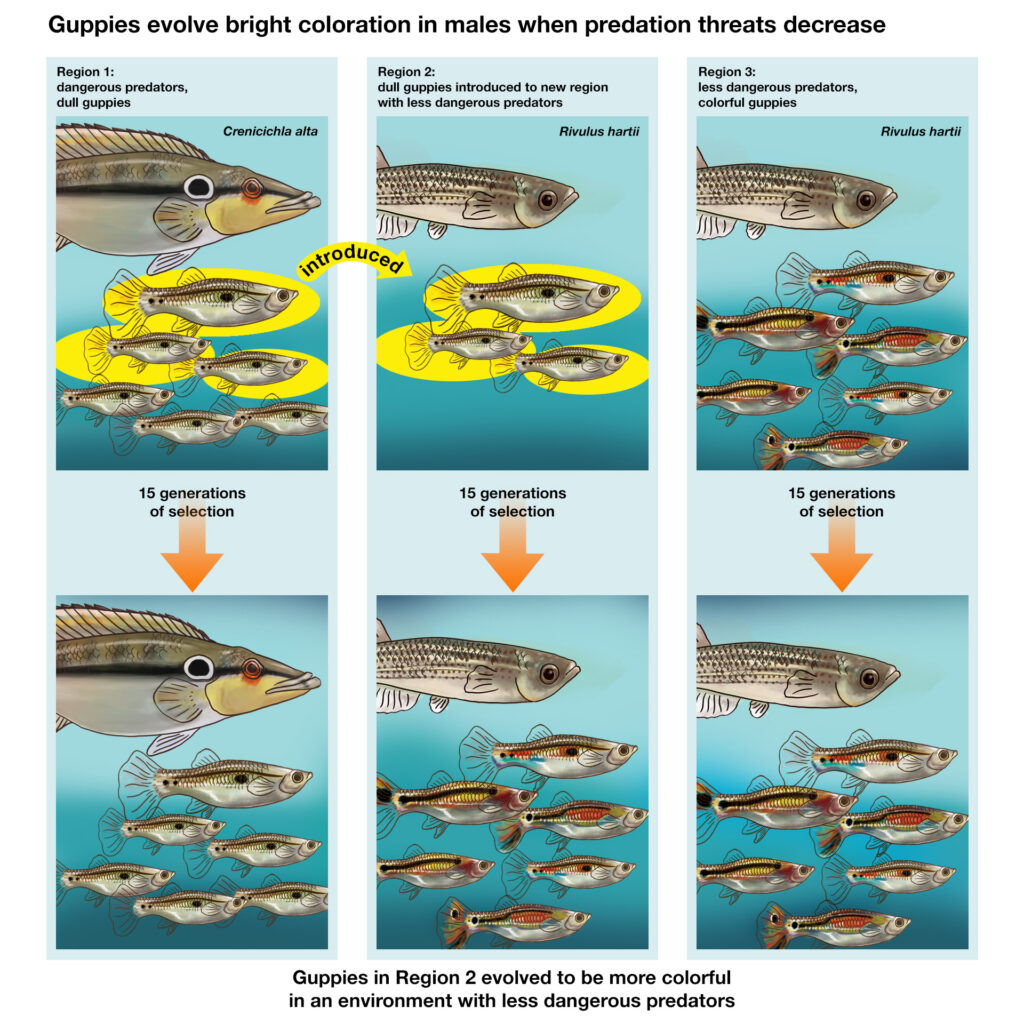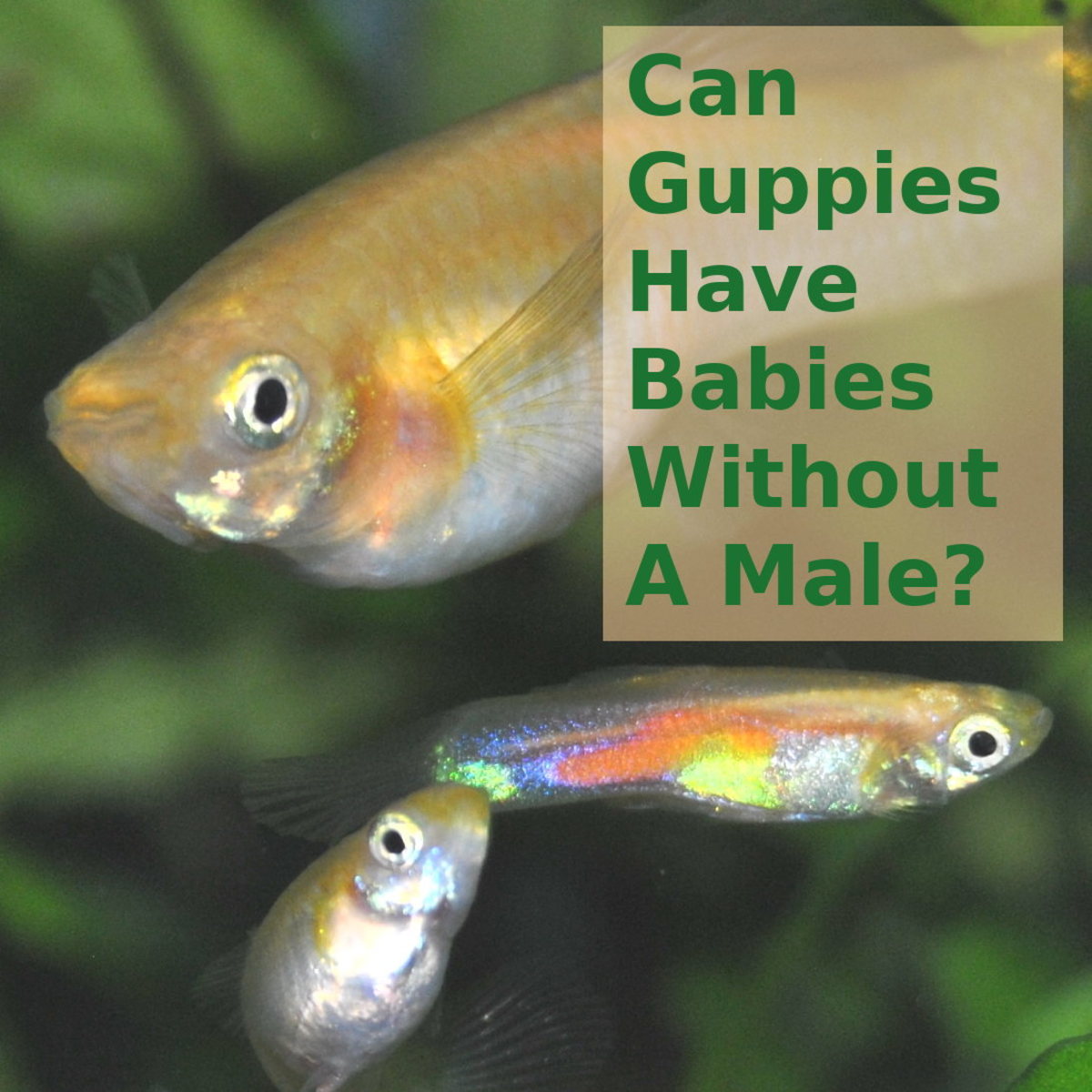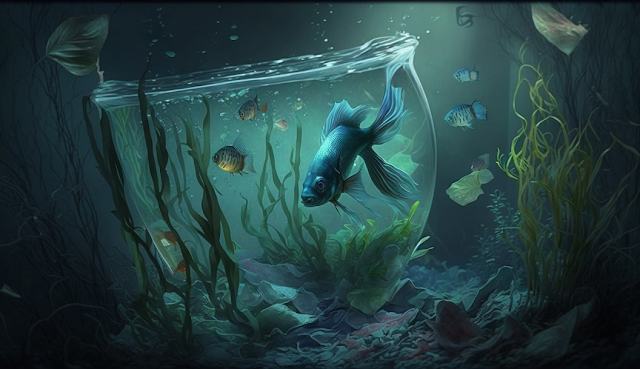If you've ever wondered about the eating habits of guppies, then "Understanding the Omnivorous Nature of Guppies" is the article for you! Dive into the fascinating world of these charming fish as we explore their dietary preferences. From their love for both plants and small insects to the importance of a balanced diet, this article will provide you with a comprehensive understanding of guppies' omnivorous nature. So, whether you're a curious guppy enthusiast or simply intrigued by these colorful creatures, get ready to learn all about the eating habits of guppies!
Overview of Guppies
Introduction to guppies
Guppies are small freshwater fish from the Poecilia genus, also known as Million Fish or Rainbow Fish. They are popular among hobbyists due to their vibrant colors and playful nature. Guppies are native to the warm waters of South America and are widely distributed across the world. They have become one of the most commonly kept aquarium fish globally, both for hobbyists and researchers.
Physical characteristics of guppies
Guppies have a slender and elongated body shape, typically reaching a length of around 2-3 inches. They have a signature fan-shaped caudal (tail) fin, which varies widely in color and design, making them visually stunning. The males possess more vibrant and colorful patterns than the females, primarily to attract potential mates. Guppies also exhibit sexual dimorphism, where the males are smaller than the females, displaying brighter colors to court their female counterparts.
Habitat of guppies
Guppies are highly adaptable fish that inhabit a variety of freshwater ecosystems, including streams, rivers, and ponds. They are well-suited to warm tropical and subtropical climates. Guppies are known to thrive in areas with abundant vegetation, as it provides them with ample hiding places from predators. Moreover, they prefer slow-moving or still waters as they are not strong swimmers.
Omnivorous Diet
Understanding guppies as omnivores
Guppies are classified as omnivores, meaning they consume a diverse range of both plant and animal matter. This dietary flexibility is crucial for their survival in different ecosystems as it allows them to adapt to the available food sources. Being omnivores enables guppies to maintain their energy levels and fulfill their nutritional requirements effectively.
Importance of omnivory for guppies
The omnivorous nature of guppies provides several advantages. Firstly, it allows them to access various food sources, reducing competition with other species for limited resources. Secondly, the ability to consume both plants and animals provides guppies with a balanced diet, ensuring they obtain a wide range of essential nutrients. This adaptability is particularly important in habitats where the availability of certain food sources may fluctuate seasonally.

Primary Food Sources
Aquatic plants
Guppies feed on a variety of aquatic plants in their natural habitat. They graze on the surface of plants, consuming algae and plant material such as leaves and stems. Aquatic plants supply guppies with a significant proportion of their nutritional needs, including carbohydrates and fiber.
Algae
Algae form a vital part of the guppies' diet, especially microalgae and biofilms. These microscopic organisms offer a rich source of proteins, lipids, and vitamins. Guppies often graze on the surfaces of rocks, plants, or any substrate covered with algae.
Small invertebrates
Guppies are opportunistic feeders and readily consume small invertebrates such as insects, crustaceans, and their larvae. These invertebrates provide an excellent source of animal protein, which is essential for growth and reproduction in guppies.
Zooplankton
In addition to consuming larger invertebrates, guppies also feed on zooplankton. Zooplankton consists of tiny aquatic animals, including rotifers, copepods, and cladocerans. These small organisms are a significant food source for guppies, providing them with essential nutrients, especially during their early stages of development.
Surplus Consumption
Concept of surplus consumption
Surplus consumption refers to the tendency of guppies to overeat, often beyond their immediate energy requirements. This behavior is observed in both wild populations and captive individuals. Guppies have been observed to consume more food than necessary when it is available, leading to excess energy intake.
Reasons behind overeating
There are several factors that contribute to guppies' surplus consumption. Firstly, guppies have relatively large stomach capacities, allowing them to consume more food at once. This is an adaptive trait that enables guppies to maximize their intake during periods of abundance. Secondly, guppies have an opportunistic feeding behavior, always on the lookout for available food sources. This instinct drives them to consume as much food as possible whenever it is accessible. Moreover, guppies are known to exhibit a feeding frenzy behavior, where the presence of food triggers a competitive feeding response among individuals.

Prey Preference
Selective feeding behavior
While guppies are known to consume a wide range of food sources, they also exhibit selective feeding behavior. This means they show preferences for certain types of prey over others. Guppies tend to prioritize food sources that are high in energy content or provide essential nutrients required for growth and reproduction.
Factors influencing prey preference
Various factors influence guppies' prey preference. One such factor is the nutritional composition of the food source. They are more likely to consume prey that is rich in proteins, lipids, and vitamins. Additionally, guppies' feeding preferences can be influenced by factors such as the availability, size, and mobility of potential prey. For example, they may show a preference for larger or more active prey items over smaller or less mobile ones.
Nutritional Requirements
Macronutrient needs
Guppies have specific macronutrient requirements to sustain their physiological functions. Proteins are crucial for growth, tissue repair, and reproduction. Lipids provide a concentrated source of energy and are necessary for hormone production. Carbohydrates contribute to energy requirements and are particularly important for fueling their metabolism.
Micronutrient needs
In addition to macronutrients, guppies also require various micronutrients for optimal health. These include vitamins, minerals, and trace elements. Micronutrients play essential roles in various physiological processes such as enzyme function, immune system regulation, and cell maintenance.

Feeding Strategies
Feeding patterns in the wild
In the wild, guppies exhibit both individual and group feeding patterns. Individual feeding allows guppies to access food sources independently, maximizing their intake. Group feeding, on the other hand, can provide advantages in terms of increased foraging efficiency and improved predator avoidance. Guppies often form schools while feeding, allowing them to search for food collectively and stay vigilant against potential threats.
Feeding patterns in captivity
In captivity, guppies are typically provided with a balanced diet through the use of commercial fish food. These formulated feeds are specifically designed to meet their nutritional requirements. However, it is important for guppy owners to provide a varied diet that includes live or frozen foods, such as brine shrimp or daphnia, to mimic their natural feeding behaviors and ensure optimal health.
Impact on Ecosystem
Role of guppies in food webs
Guppies play a significant role in freshwater food webs. As omnivores, they occupy a unique trophic position, consuming both plants and animals. Their feeding habits allow them to act as important intermediates, transferring energy and nutrients between different trophic levels. Guppies indirectly affect the abundance and distribution of other species by regulating the populations of their prey through predation.
Ecological implications of their omnivory
The omnivorous nature of guppies contributes to the ecological dynamics of their habitat. By consuming aquatic plants and algae, guppies help control the growth of these organisms, preventing overgrowth that can negatively impact other aquatic species. Conversely, their predation on invertebrates can influence the abundance and diversity of these organisms, potentially affecting the overall ecosystem structure.

Feeding Challenges
Competition for food
Guppies, like many other species, face competition for food within their habitats. Limited food availability can lead to increased competition among individuals, especially during periods of scarcity. This competition can influence feeding behaviors and drive guppies to seek out alternative food sources or develop strategies to outcompete their conspecifics.
Predation risks while feeding
Feeding exposes guppies to increased predation risks, as they become more vulnerable to visual predators while focusing on obtaining food. Guppies have developed several adaptive strategies to minimize these risks, such as feeding in groups for increased vigilance and utilizing camouflage provided by aquatic plants. These strategies help to mitigate the potential threats associated with feeding.
Feeding Behavior Studies
Research on guppies' feeding behavior
Scientific studies have explored various aspects of guppies' feeding behavior to better understand their dietary habits and ecological interactions. Researchers have investigated factors such as prey preference, feeding rates, and the impact of food availability on their behavior. These studies provide valuable insights into guppies' feeding strategies and their role in the broader ecosystem.
Experimental approaches
Researchers have employed various experimental approaches to study guppies' feeding behavior. This includes laboratory experiments using controlled feeding environments, as well as field studies conducted in their natural habitats. These experiments often involve manipulations of food availability, prey types, or the presence of competitors or predators to observe guppies' responses and behavior.
Insights from feeding behavior studies
Feeding behavior studies have enhanced our understanding of guppy ecology and the ecological implications of their omnivorous diet. These studies have shed light on the mechanisms that drive their feeding preferences, the factors influencing their diet choices, and the consequences of their feeding habits on ecosystem dynamics. Moreover, the insights gained from these studies can help inform conservation efforts and the management of guppy populations in their native habitats.
In conclusion, guppies' omnivorous nature and feeding behavior play a crucial role in their survival and ecological interactions. Their dietary flexibility allows them to adapt to a wide range of food sources, ensuring their nutritional needs are met. While guppies may exhibit surplus consumption and selective feeding behavior, their feeding habits have both ecological benefits and challenges. Through scientific research and understanding, we continue to uncover the complexities of guppies' feeding behavior and their impact on the ecosystems they inhabit.























